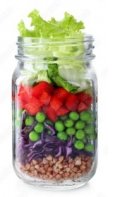Let "Them" Grow!
by Courtney Ramsey-Coleman
NCDHHS Healthy Eating and Nutrition Security Coordinator
|
Teachers play a vital role in nurturing the growth and development of young children. Beyond imparting academic knowledge, they serve as guides, mentors, and caregivers, fostering holistic development in various domains. Through structured activities and playful interactions, preschool teachers stimulate cognitive, social, emotional, and physical growth. They create a supportive environment where children can explore, experiment, and learn through hands-on experiences.
By encouraging curiosity, creativity, and critical thinking, teachers lay the foundation for lifelong learning. Moreover, they instill important values such as empathy, cooperation, and respect, promoting positive social interactions and emotional well-being. With their dedication, patience, and expertise, preschool teachers not only educate but also inspire and empower children, shaping them into confident, compassionate individuals ready to embrace the challenges of the future.
|
|
Whip It Up!
by Marianne Lindgren & Willow Thomas
|
Teachers and staff work hard to care for children each day, often putting self-care aside. It is important to remember that by making sure our needs are met, we can better care for those around us. An important way we can show ourselves love is to eat plenty of veggies and fruits which are full of antioxidants and fiber, giving us lots of energy to feel rejuvenated all day long!

Salad Shakers are a creative and easy way to eat more seasonal vegetables and fruits! Simply choose at least two different vegetables or one vegetable and a fruit, then add a meat/meat alternate (e.g., tofu, beans, low-fat shredded mozzarella cheese, grilled chicken/turkey, seeds, nuts) to the salads. Don’t forget the grains too, which can be part of the salad or served on the side (e.g., brown rice, bulgur, quinoa, whole grain-rich pita bread, couscous, crackers, etc.). Check out this fun Salad Shaker recipe from USDA for full instructions.
You can also make this salad part of a CACFP reimbursable lunch/supper meal by including the required meal components and the appropriate type of milk (i.e., fat content and unflavored/flavored) for the age group you plan to serve. Be careful to credit nuts and seeds, dried fruit, and leafy greens correctly. Make sure to cut foods into the size and shape appropriate for the age group being served to reduce the risk of choking.
Kids may enjoy giving the salad a shake to combine the ingredients. Have fun creating your salads!
Recipe adapted from: USDA
|
|
This Week in the Garden
@ Preschool
|
|
See what's happening
preschool edition! |
|
|
The NC Farm to Preschool Network connects, educates, develops and shares resources between community and state partners, farmers, early childhood educators and families to spark the local foods movement in early childhood education environments. |
|
|
|
I Love Greens
by Victoria Boutenko
I Love Greens is an elegantly illustrated book that tenderly teaches toddlers about the importance of eating healthy.
Little Blue Truck's Springtime
by Alice Schertle
Celebrate the beauty of springtime with Little Blue Truck! Young fans will love finding all sorts of baby animals beneath the flaps in this delightful novelty board book. Beep! Beep! Peep! Read aloud on YouTube.
|
|
As part of the State Physical Activity and Nutrition (SPAN) grant, the Division of Public Health, Community and Clinical Connections for Prevention and Health Branch, in collaboration with Steps to Health, SNAP-Ed, aims to increase the development of farm to preschool programs in ECE sites. Through monthly virtual garden collaboratives, this program will guide garden coordinators in developing gardens, integrating gardens into curriculum and utilizing harvests for snacks. Congratulations to the lead organizations: Buncombe Partnership for Children, Wake County Smart Start, and North Carolina State University.
|
|
Check out the follow 40 self-care tips to boost your mental health here!
The Farm to ECE Connections Map functions as a resource for connecting childcare sites with local farmers, aiming to promote the use of locally sourced foods, build stronger connections, and contribute to the creation of healthier communities throughout North Carolina. Are you on the map yet? If not, you can register here.
Stay up to date on upcoming Go NAPSACC consultant webinars, trainings, and office hours with our 2024 Consultant Opportunities Calendar! Topics, dates, and registration links are included. Sign up now for Go NAPSACC consultant webinars, office hours and new consultant trainings! Click here or on the image to download the calendar.
|
|
|